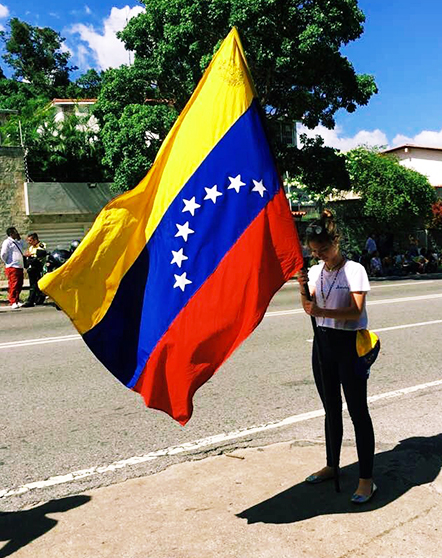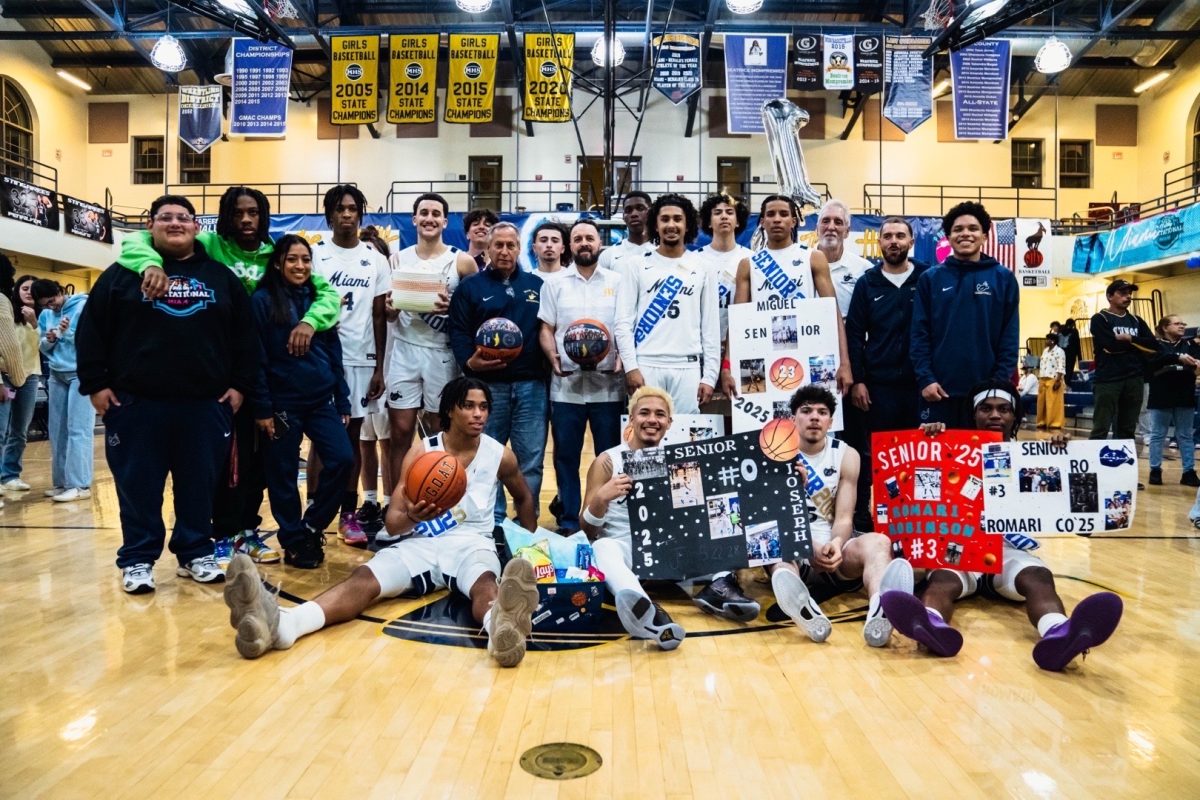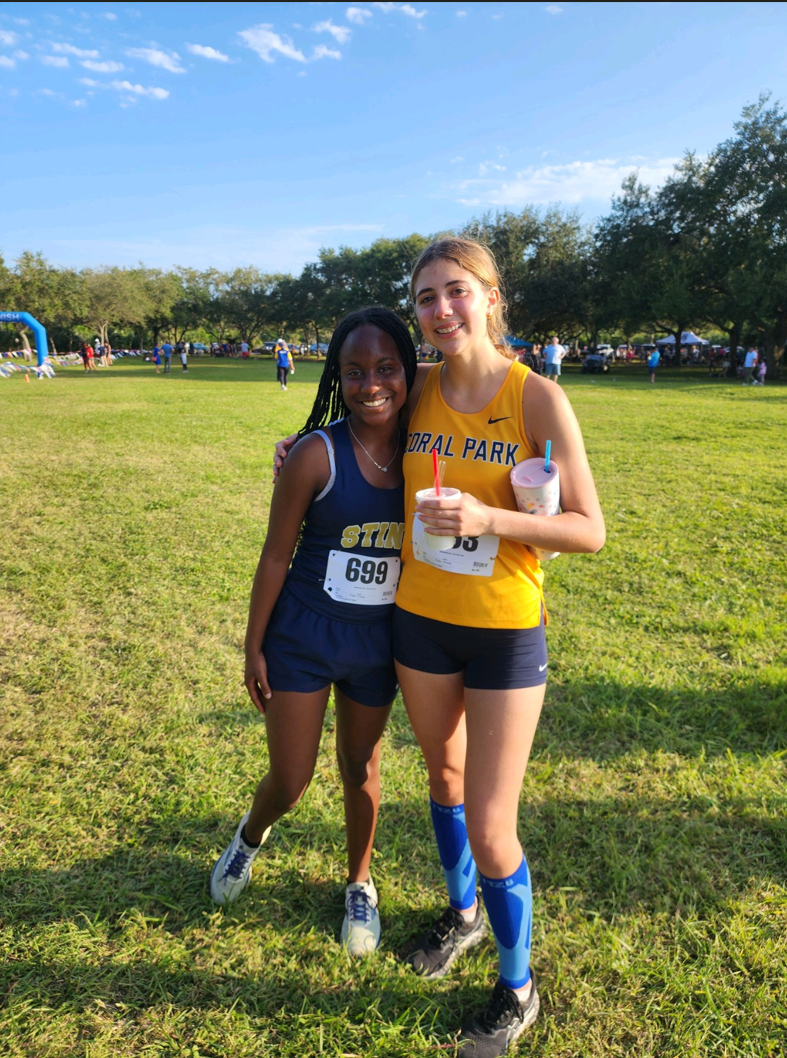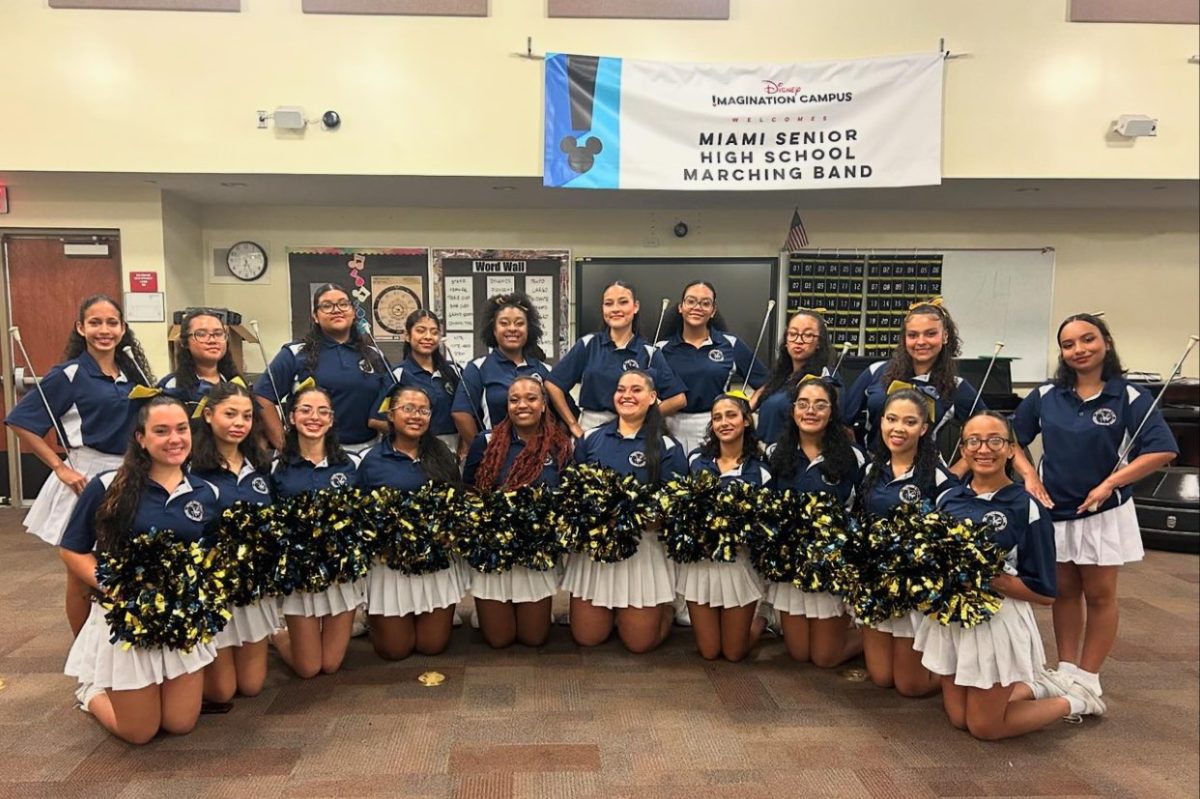The American Nightmare

Helena Palis protesting July 4th of 2017 in Caracas, Venezuela.
December 13, 2019
We come to the U.S. searching for our dreams, for a better tomorrow, and for a better life, yet these dreams are becoming harder to achieve every single day. As immigrants we struggle, such as being rejected because of who we are or where we come from.
Nevertheless, we stop at nothing to achieve those goals we have set for ourselves. When applying for jobs, schools and specially college, explaining your immigration status to a total stranger can be demanding.
Asylum Seekers
Applying to college at the same time you are applying for asylum can be a very difficult and stressful task. Senior Daniela Cerrato, originally from Honduras and currently applying for asylum said, “I have to call the colleges I am applying to in order to be able to explain my current situation, such as when my case is going to be open, and when we finally have our court hearing.” She could already be graduating, and chances are the immigration authorities still have not opened or reviewed her file.
Legal Residents
People’s immigration status, such as mine, can change quickly here in south Florida. In 2016, when I was 14 years old, after a year of considering my options, I decided to come to Miami with my 15-year-old sister, from Venezuela, where I was living with my father while the economic and political situation was crashing down. During that year my dad, who happens to be a lawyer, coached me on what to say when passing through immigration at the Miami International Airport with a tourist visa.
One month after arriving, my mother’s new husband Ricardo, a naturalized U.S. citizen also from Venezuela, solicited me and my sister to be able to obtain our residency, which my mother had already obtained. This lengthy process had to include proof that we lived together, and that he was able to maintain me and my sister without my mother’s support.
I would love to state that it was all rainbows and sunshine, but within months of moving here, President Trump was elected into office, and with it a lot of immigration reforms, delaying a one-year process to two years and seven months filled with tears and worries since our status was uncertain.
One year passed by and we still had not been able to set an appointment to get fingerprints, but after months of praying, that miracle came around. Nevertheless, more bumps appeared in the road. One year and a half later, when I was applying to colleges, the colleges requested my permanent resident card, but I hadn’t gotten mine.
This led me to call every single university to be able to explain my situation, but two weeks into this tedious process, my permanent residency card finally arrived. But even with this, some universities such as FSU solicited four other forms of paperwork such as driver’s license, proof of residency, and my mom’s contract with her current employer, to really ensure that I was a legal resident.
For those that are afraid
While my college application process has not been easy, I know there are students with a different status that have issues way worse than mine. If you are an undocumented or DACA student, there are several agencies and people that you can reach out to for help.
Ms. Puentes, CAP counselor at Miami High, said, “We have a school that is more than open to helping every single one of you guys, working with several agencies such as United We Dream and Florida Immigration Coalition (FLIC), to help you get into college and also get you money. Do not be afraid to reach out. Everything that happens in my office is strictly confidential, but if I do not know you, I will not be able to help you.”
Most Miami High students, specially immigrants, encounter the same issue when applying to college. “Most of the students need a push or an incentive when applying for college,” stated Ms. Puentes. “Students are either unmotivated or do not really know what they want to do, and that is why I am here to be able to guide them through either the application process or give them resources for different technical schools after graduation.”
~~~~~~~~~~~~~~~~~~~~~~~~~~~~~~~~~~~~~~~~~~~~~~~~~~~~~~~~~~~~~~~~~~~~~~~~~~~~~~~~~~~~~~~
La perspectiva de mi padre
Una perspectiva sobre mi inmigracion fue la de mi padre, depictada en un articulo, en un periodico nacional en Venezuela “El Nacional”, pero debido a la situacion politica, el articulo fue eliminado del internet un par de meses despues. Aun asi quedo un rastro de esta obra de arte, en el cual mi padre abrio su corazon al mundo para hablar sobre sus “sentimientos encontrados”. Una pagina web “El Entorno Inteligente” copio el articulo https://www.entornointeligente.com/mis-hijas-sern-leonas-de-dos-mundos-el-consuelo-de-un-padre-cuando-sus-hijas-emigran/ para que el mundo pudiera ver el dolor que implica inmigrar. Debido a nuestra ida, mi padre intento demonstrar que aunque haya un lado negativo, siempre hay que ver el vaso medio lleno y no medio vacio debido a que “no quise llorar ni mostrar tristeza porque el mensaje es que ellas van a tener un mejor futuro.”
One perspective about my immigration story was my father’s, that was depicted in the national newspaper “El Nacional” but it was taken down a couple of months after due to the political situation in my country. Nevertheless, there was still a trail left of this masterpiece. An independent website “El Entorno” reposted the article https://www.entornointeligente.com/mis-hijas-sern-leonas-de-dos-mundos-el-consuelo-de-un-padre-cuando-sus-hijas-emigran/ where my father talked about his “mixed feelings” to demonstrate all the highs and lows that come with this huge decision. My father said that even though there are several negative factors about our departure, we must see the glass half full and not half empty, “I did not want to cry nor show my sadness, because I know they are going to have a better future there,” he said.





